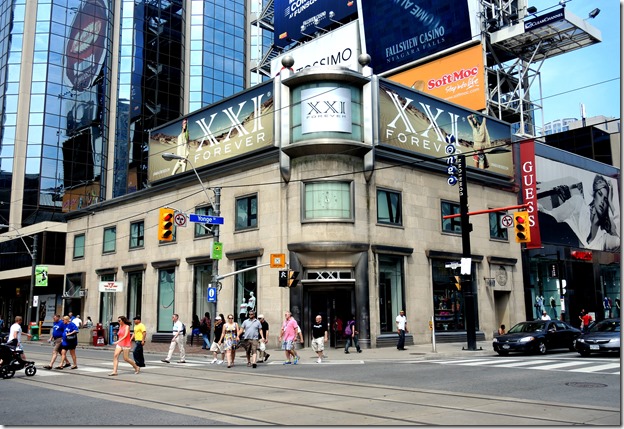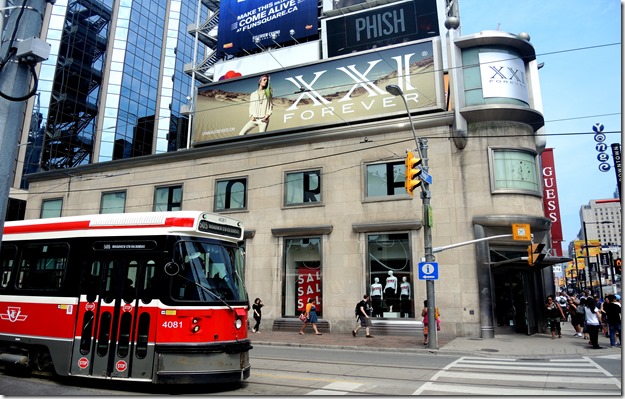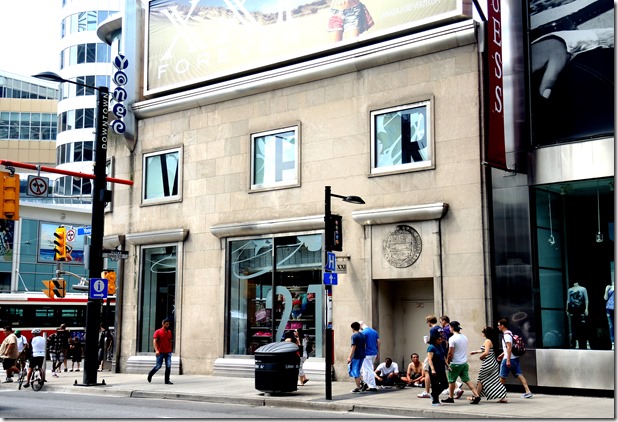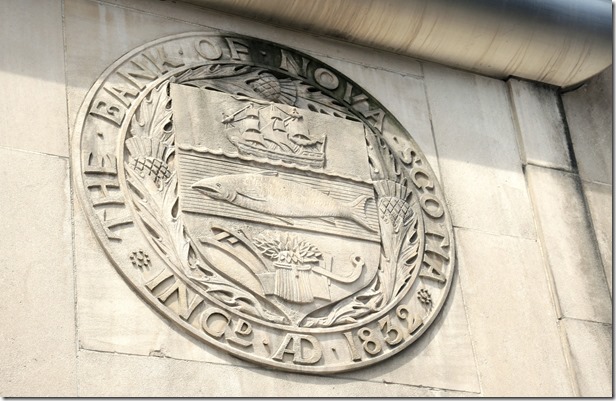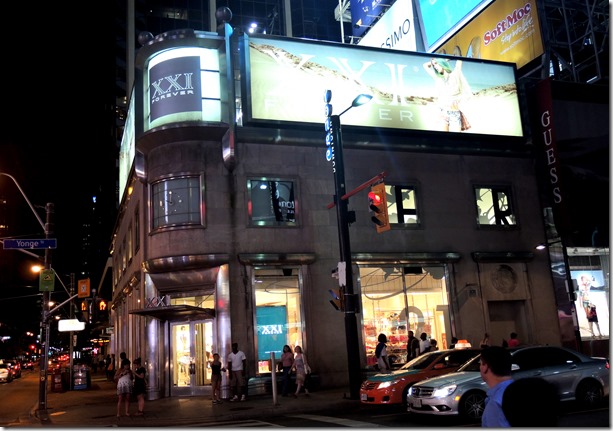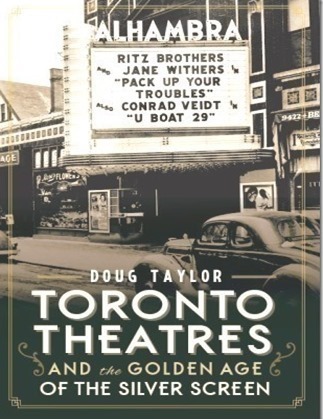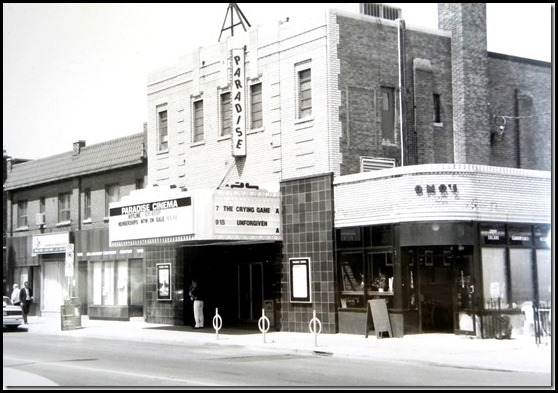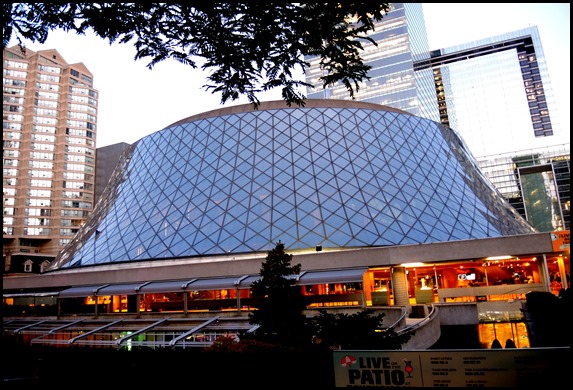The old bank building on the northwest corner of Yonge and Dundas Street is situated in one of the most lively and vibrant intersections in the city. It overlooks Dundas Square and the busy four-way pedestrian street-crossing. The location has been a coveted piece of real estate for many decades. At one time, the site was a branch of the Bank of Nova Scotia.
In 1890, a building on the site was occupied by T. D. Ball and Company, “gent’s furnishings.” On the Goad’s Atlas map of 1899, in the City of Toronto Archives, this section of Dundas was then named Agnes. In 1925, a United Cigar Store was on the corner, and remained on the premises until 1950. In that year, the Bank of Nova Scotia constructed the present-day building and shared the premise with the United Cigar Store and Coward Clothing Store. Eventually the bank occupied the entire building and renovated the premises, placing the huge crest above the door on the east facade. It remained a functioning bank into the 1990s. There is no record of it in the Toronto Directories after 1998.
Bank of Nova Scotia in 1950 when it shared the ground floor with the United Cigar Store and Kay’s Shoes. Coward Clothes were on the second floor. Photo, City of Toronto Archives, Series 574, fl0013, id49321
The Bank of Nova Scotia at Yonge and Dundas in 1952, when the staircase to enter the Yonge subway station was under construction. Photo from City of Toronto Archives, Series 381, fl10210, id9820-1
The Yonge-Dundas Branch of the Bank of Nova Scotia as it appears in 2013
The south facade of the building facing Dundas Street West, looking north up Yonge Street.
The east facade of the old bank building, facing Yonge Street. The crest of the Bank of Nova Scotia is visible above the doorway at the north end.
The crest of the Bank of Nova Scotia on the east facade.
The bank building on a hot July night in 2013.
To view the Home Page for this blog: https://tayloronhistory.com/
Links to other posts about the history of Toronto and its buildings:
https://tayloronhistory.com/2013/10/08/links-to-historic-architecture-of-torontotayloronhistory-com/
Links to posts about Toronto’s movie houses—past and present.
https://tayloronhistory.com/2013/10/09/links-to-toronto-old-movie-housestayloronhistory-com/
Recent publication entitled “Toronto’s Theatres and the Golden Age of the Silver Screen,” by the author of this blog. The publication explores 50 of Toronto’s old theatres and contains over 80 archival photographs of the facades, marquees and interiors of the theatres. It also relates anecdotes and stories from those who experienced these grand old movie houses.
To place an order for this book:
Theatres Included in the Book
Chapter One – The Early Years—Nickelodeons and the First Theatres in Toronto
Theatorium (Red Mill) Theatre—Toronto’s First Movie Experience and First Permanent Movie Theatre, Auditorium (Avenue, PIckford), Colonial Theatre (the Bay), thePhotodome, Revue Theatre, Picture Palace (Royal George), Big Nickel (National, Rio), Madison Theatre (Midtown, Capri, Eden, Bloor Cinema, Bloor Street Hot Docs), Theatre Without a Name (Pastime, Prince Edward, Fox)
Chapter Two – The Great Movie Palaces – The End of the Nickelodeons
Loew’s Yonge Street (Elgin/Winter Garden), Shea’s Hippodrome, The Allen (Tivoli), Pantages (Imperial, Imperial Six, Ed Mirvish), Loew’s Uptown
Chapter Three – Smaller Theatres in the pre-1920s and 1920s
Oakwood, Broadway, Carlton on Parliament Street, Victory on Yonge Street (Embassy, Astor, Showcase, Federal, New Yorker, Panasonic), Allan’s Danforth (Century, Titania, Music Hall), Parkdale, Alhambra (Baronet, Eve), St. Clair, Standard (Strand, Victory, Golden Harvest), Palace, Bedford (Park), Hudson (Mount Pleasant), Belsize (Crest, Regent), Runnymede
Chapter Four – Theatres During the 1930s, the Great Depression
Grant ,Hollywood, Oriole (Cinema, International Cinema), Eglinton, Casino, Radio City, Paramount, Scarboro, Paradise (Eve’s Paradise), State (Bloordale), Colony, Bellevue (Lux, Elektra, Lido), Kingsway, Pylon (Royal, Golden Princess), Metro
Chapter Five – Theatres in the 1940s – The Second World War and the Post-War Years
University, Odeon Fairlawn, Vaughan, Odeon Danforth, Glendale, Odeon Hyland, Nortown, Willow, Downtown, Odeon Carlton, Donlands, Biltmore, Odeon Humber, Town Cinema
Chapter Six – The 1950s Theatres
Savoy (Coronet), Westwood
Chapter Seven – Cineplex and Multi-screen Complexes
Cineplex Eaton Centre, Cineplex Odeon Varsity, Scotiabank Cineplex, Dundas Square Cineplex, The Bell Lightbox (TIFF)
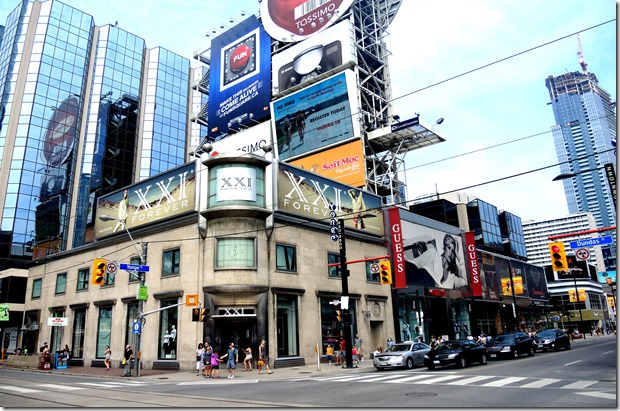
![s0574_fl0013_id49321[1] s0574_fl0013_id49321[1]](https://tayloronhistory.com/wp-content/uploads/2013/09/s0574_fl0013_id493211_thumb.jpg)
![201191-Nova-scotia-yonge-dundas-1952-s0381_fl0210_id9820-1[1] 201191-Nova-scotia-yonge-dundas-1952-s0381_fl0210_id9820-1[1]](https://tayloronhistory.com/wp-content/uploads/2013/09/201191-nova-scotia-yonge-dundas-1952-s0381_fl0210_id9820-11_thumb.jpg)
